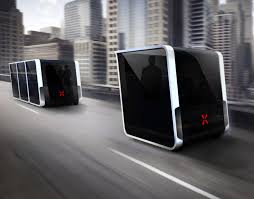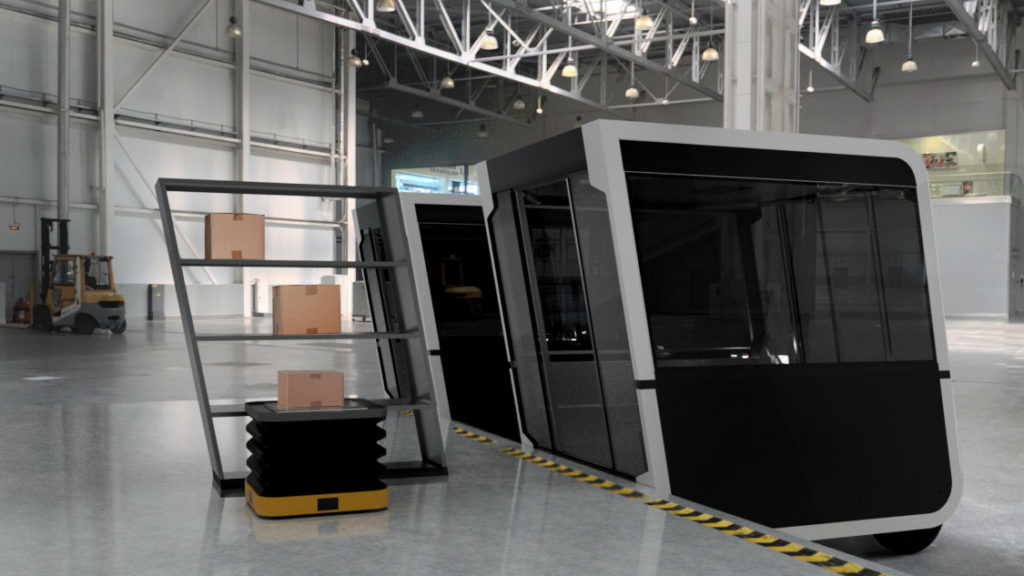US startup Next Future Transportation (Next) has unveiled its new automated logistics solution for smart and connected cities. The fully-automated online-to-offline (O2O) platform includes a modular vehicle solution that doubles-up as a mobile parcel locker.
“To date, Next has entirely focused on creating innovative solutions for the municipal mass transportation market,” said Emmanuele Spera, CEO of Next. “Today, the company enters the global US$2.3tn e-commerce market, which is driving a rapid transformation of the traditional retail supply chain.”
Built on Next’s modular transportation platform, the logistics solution is an automated electric vehicle designed to be customizable and scalable for a wide range of mobility-as-a-service (MaaS) applications. A fully integrated logistics solution, Next’s modified autonomous vehicle concept has been designed to complement warehouse optimization and supply chain strategies.
Once loaded at a warehouse or distribution hub, individual vehicles autonomously connect to form a fleet, thus enabling the joint internal space to be utilized. While on route, parcels can be mechanically shifted among vehicles to ensure optimal final delivery.
Tommaso Gecchelin, chief technology officer, Next, said, “Next’s approach fundamentally differs from all current autonomous ground vehicles (AGV) and e-shuttles in that our vehicle’s open interior design layout can flexibly adapt to accommodate specific needs.
“Furthermore, Next’s fleets can be operated by a human driver, a remote human operator, or autonomously. We therefore plan to operate on public roadways in the near term.”
 To meet the growing global demands for convenient last-mile delivery, Next’s autonomous transportation vehicles also double-up as mobile parcel lockers.
To meet the growing global demands for convenient last-mile delivery, Next’s autonomous transportation vehicles also double-up as mobile parcel lockers.
“Our unique locker solution will provide retailers with more control, while reducing the overall costs of delivery,” said Sven Hackmann, executive vice president of Next.
“The public will benefit from superior flexibility and ease of use as delivery locations are determined by customer proximity.”
With offices in Europe and the USA, Next has identified China and the Gulf region as its primary growth markets. It will announce its formal China market entry later this year.
“We are encouraged by the lifting of restrictions on the business scope of foreign startups, which is a path to ensure fair competition in China,” added Spera.
“From 2008 to 2015, China’s same-city delivery was the fastest growing sector among various logistics businesses, with a 44% annual growth rate, according to China’s State Post Bureau. It is expected the market will reach over RMB200bn (US$29bn) in 2020, and we are excited to participate.”


